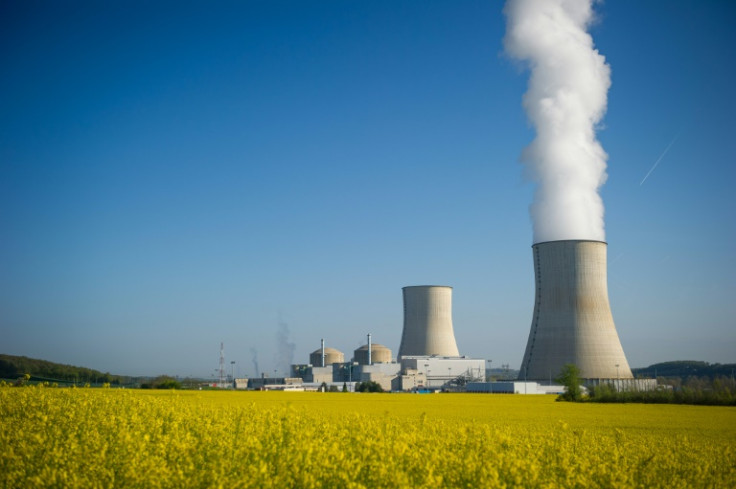UK Launches Europe's First Next-Gen Nuclear Fuel Production Plan To End Russian Fuel Dominance
The UK has launched a unique nuclear fuel production programme called the HALEU programme which powers nuclear reactors previously fueled by Russian fuel, fulfilling its COP28 promise of reducing Russian fuel dominance.

The UK is fueling new competition in the global energy market by investing in high-tech nuclear fuel development which will counter Putin's dominance.
On January 7, the Department for Energy Security and Net Zero announced a £300 million investment to support domestic nuclear fuel generation which would be used to power next-generation nuclear reactors across the UK.
With this announcement, Britain has added a feather to its cap as it has become the first European country to launch a high-assay enriched uranium (HALEU) programme which will create nuclear fuel.
Through the HALEU programme the UK government is aiming to produce enriched uranium necessary to power next-generation nuclear reactors, adding UK jobs and boosting investment in North West England.
At present Russia is the only commercial producer of HALEU in the world. So, the move can push Putin out of the global energy market, at a time when Russia is reeling under sanctions because of the Ukraine Invasion.
Russia could lose its dominance in Europe as the UK becomes the first country in Europe with a HALEU nuclear fuel programme that supplies fuel to its new nuclear projects and that of others.
This £300 million landmark investment is part of the UK government's target of delivering 24GW of clean and reliable nuclear power by 2050. A quarter of UK electricity needs will be fulfilled if that happens.
The High assay low enriched uranium or HALEU is a specialist fuel needed to power next-generation nuclear reactors and most advanced nuclear reactors in the UK are of this nature. Hence they are fueled by Russian HALEU.
The Sunak government has also announced an additional £10 million in funding to enhance the skills and the nuclear fuel generation sites so that advanced nuclear fuel can be generated in the UK. This infrastructure investment seeks to secure UK energy security at a time of high energy bills and the cost-of-living crisis as long-term domestic nuclear fuel supply is ensured.
The HALEU programme will also help Britain strengthen its status as a global leader, especially in energy security and nuclear fuel production as it can support international allies with domestic capability in uranium enrichment and in fuel fabrication in the North-West of England.
Making the UK a global leader in nuclear energy and ending Russian fuel dominance
Speaking about the matter, the Secretary of State for Energy Security and Net Zero, Claire Coutinho, said: "We stood up to Putin on oil and gas and financial markets, we won't let him hold us to ransom on nuclear fuel."
Coutinho further explained the UK's role in the nuclear sector as it "gave the world its first operational nuclear power plant", and now it will be "the first nation in Europe outside of Russia to produce advanced nuclear fuel".
"This will be critical for energy security at home and abroad and builds on Britain's historic competitive advantages," Coutinho added.
The UK government is aiming to reduce the vulnerability of UK homes to global instability through this measure as it will ensure affordable and clean domestic power without raising prices and transitioning to net zero
The government further underlined how advanced modular reactors could change the face of the UK nuclear sector and help in its revival as they can be easily made in UK factories like small modular reactors. This could speed up construction of power stations across the UK and make them less expensive, said the ministry.
Many of the advanced modular reactors could be used for a wide range of applications like hydrogen and industrial heat production, not just low-carbon electricity generation.
Earlier last year, the UK government announced the Great British Nuclear Plan which seeks to develop nuclear power technology.
The HALEU programme will boost the nuclear fuel production hub in the North West of England as the first nuclear power plant goes operational in the early 2030s. The government estimates that this will support industries in the region and create UK jobs necessary to revive the UK nuclear sector and help meet net-zero targets.
With this programme, the UK also goes a step closer to fulfilling its COP28 commitment to reduce global dependence on Russian fuel. Britain is banking on nuclear fuel production to replace Russian fuel from uranium conversion services as the government and industry are jointly investing £26 million to make the UK regain its capabilities by 2030.
© Copyright IBTimes 2025. All rights reserved.






















